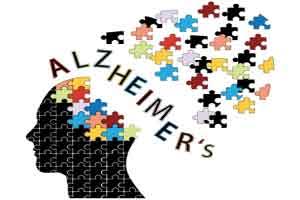- Home
- Editorial
- News
- Practice Guidelines
- Anesthesiology Guidelines
- Cancer Guidelines
- Cardiac Sciences Guidelines
- Critical Care Guidelines
- Dentistry Guidelines
- Dermatology Guidelines
- Diabetes and Endo Guidelines
- Diagnostics Guidelines
- ENT Guidelines
- Featured Practice Guidelines
- Gastroenterology Guidelines
- Geriatrics Guidelines
- Medicine Guidelines
- Nephrology Guidelines
- Neurosciences Guidelines
- Obs and Gynae Guidelines
- Ophthalmology Guidelines
- Orthopaedics Guidelines
- Paediatrics Guidelines
- Psychiatry Guidelines
- Pulmonology Guidelines
- Radiology Guidelines
- Surgery Guidelines
- Urology Guidelines
Antidepressants associated with increased head injuries in patients of Alzheimer disease

Antidepressant use is associated with an increased risk of head injuries and traumatic brain injuries among persons with Alzheimer's disease, according to a new study from the University of Eastern Finland. Antidepressant use has previously been linked with an increased risk of falls and hip fractures, but the risk of head injuries has not been studied before. The results were published in Alzheimer's Research & Therapy.
Antidepressant use was associated with a higher risk of head injuries especially at the beginning of use -- during the first 30 days -, but the risk persisted even longer, up to two years. The association was also confirmed in a study design comparing time periods within the same person, thus eliminating selective factors. The association with traumatic brain injuries was not as clear as for head injuries, which may be due to a smaller number of these events in the study population. The use of other psychotropic drugs did not explain the observed associations.
Head injuries are more common among older people than younger ones, and they are usually caused by falling. As antidepressant use has previously been associated with an increased risk of falling, the researchers were not surprised that the use of antidepressants also increased the risk of head injuries.
"However, our findings give cause for concern because persons with Alzheimer's disease frequently use antidepressants, which have been considered a safer alternative to, for example, benzodiazepines," says Senior Researcher Heidi Taipale from the University of Eastern Finland.
"Our study population consisted of persons diagnosed with Alzheimer's disease, but it is likely that the risk is similar also in other older persons without Alzheimer's disease. This is something we will be studying in the future."
The study constitutes part of the nationwide register-based MEDALZ study, which includes all community-dwelling persons diagnosed with Alzheimer's disease in Finland during 2005-2011. The study included 10,910 antidepressant users and 21,820 nonusers, all of whom had Alzheimer's disease.
For more details click on the link : Heidi Taipale, Marjaana Koponen, Antti Tanskanen, Piia Lavikainen, Reijo Sund, Jari Tiihonen, Sirpa Hartikainen, Anna-Maija Tolppanen. Risk of head and traumatic brain injuries associated with antidepressant use among community-dwelling persons with Alzheimer’s disease: a nationwide matched cohort study. Alzheimer's Research & Therapy, 2017; 9 (1) DOI: 10.1186/s13195-017-0285-3

Disclaimer: This site is primarily intended for healthcare professionals. Any content/information on this website does not replace the advice of medical and/or health professionals and should not be construed as medical/diagnostic advice/endorsement or prescription. Use of this site is subject to our terms of use, privacy policy, advertisement policy. © 2020 Minerva Medical Treatment Pvt Ltd